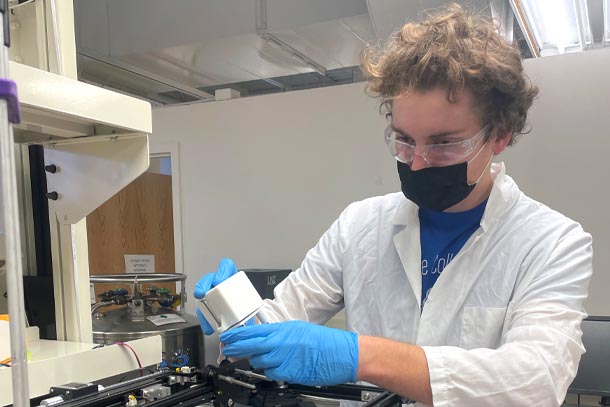
Mechanical engineering student Dungan Adams prints biopolymer ink using a custom direct ink writing 3D printer. CREDIT: DASHIELL PAPULA. ALL RIGHTS RESERVED.
Researchers use direct ink writing printer to 3D print biopolymer
1/24/2022
UNIVERSITY PARK, Pa. — Penn State mechanical engineering researchers, including undergraduate student Dungan Adams, recently published results of their investigation into 3D printing a biopolymer. The researchers found that they could print ethyl cellulose, a biomass-derived polymer, with a direct ink writing 3D printer. The achievement is proof-of-concept for using the smaller, more economic printer to fabricate biopolymer parts.
According to the paper, ethyl cellulose is an attractive candidate for 3D printing, with widespread applications as a coating for slow-release vitamins and medical pills, as well as a thickener in foods and cosmetics.
By 3D printing a biopolymer with a direct ink writing printer, users have more flexibility in print location, the ability to reduce waste materials and the option to avoid using synthetic polymers, minimizing associated risks.
The paper appeared in October 2021 in Additive Manufacturing for Medical Applications. The co-authors of the paper are Zoubeida Ounaies, professor of mechanical engineering and director of the Convergence Center for Living Multifunctional Material Systems, and Amrita Basak, assistant professor of mechanical engineering.



